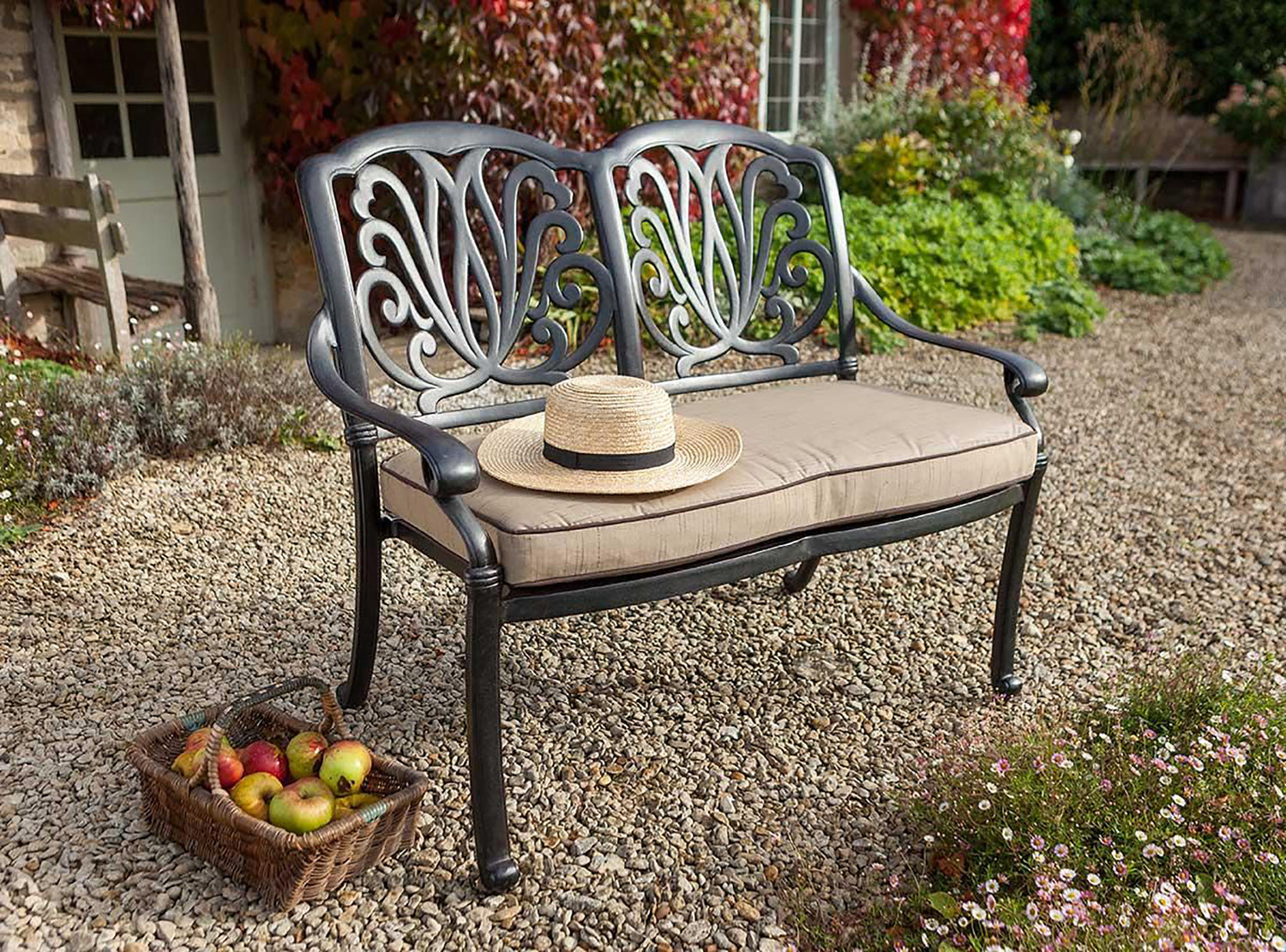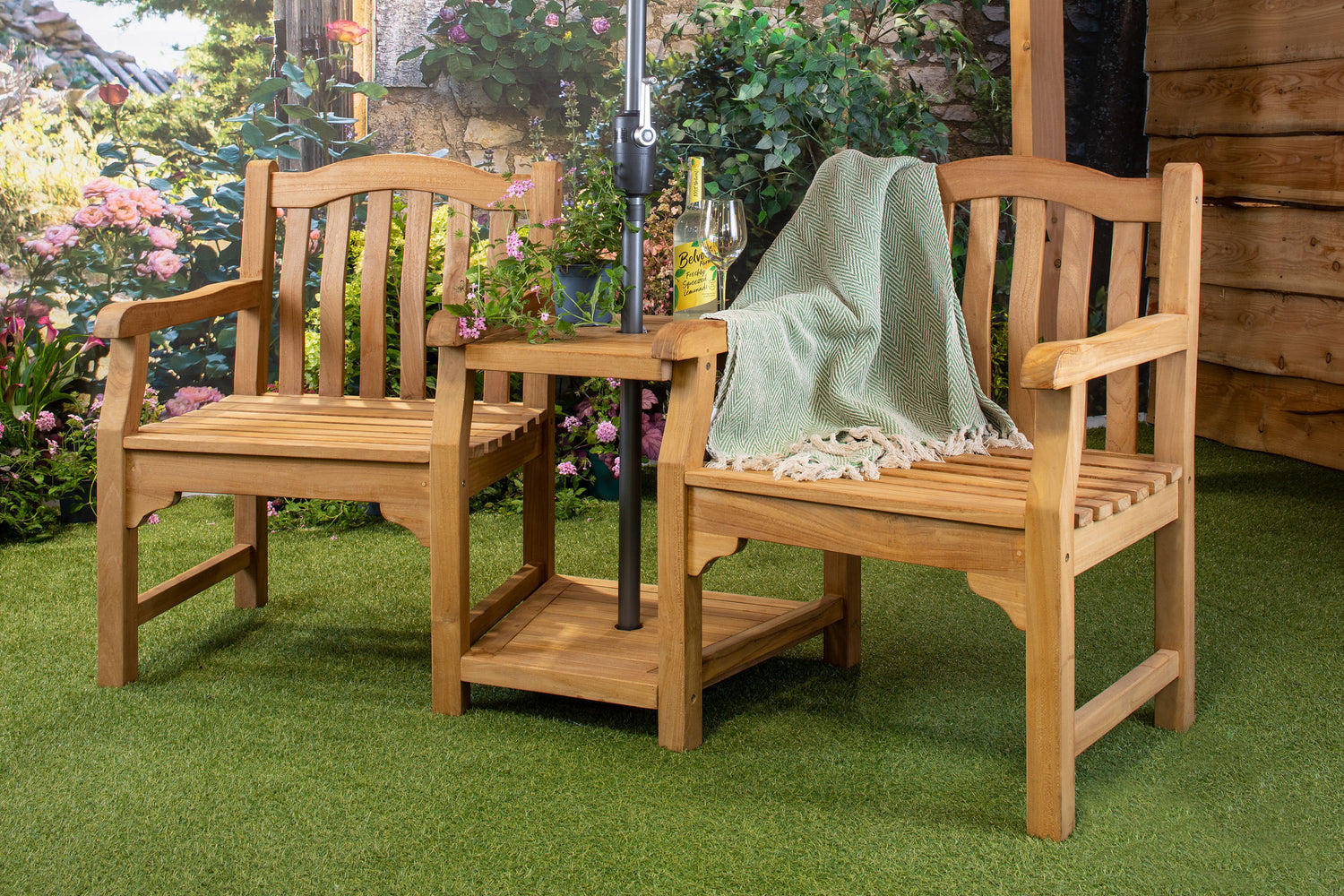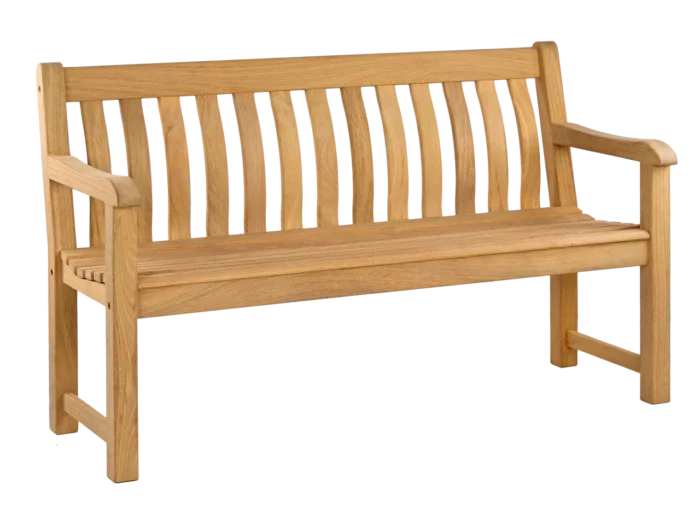The right garden tools are essential, quality tools will last a lifetime
Firstly only buy tools when you actually need them; don’t go to the garden centre and buy a lot of tools which, when you start using them find that you use a fork for doing all the things for which you bought another couple of implements. Spend time in the shop trying them out for size, obviously not by digging up the carpet! Make sure that they feel balanced and not top heavy. As a rule D-shaped handles are easier to use. Stainless steel forged in one piece is the best quality; if it is cheaper metal with a welded head this tends to be a weak spot and can break with heavy use. Wooden handles made from hardwood with a close grain are the strongest and longest lasting; avoid painted handles as they tend to disguise cheap softwood handles which will soon break under pressure. Buy the best quality you can afford, as, looked after correctly, it will last you a lifetime.
Taking good care of the tools will significantly prolong their lifespan. When you have finished with them brush off the soil and wipe them clean with an oily rag. Another alternative is to put some sharp sand into a box, mix in some oil, push your tools in and out of the sand/oil mixture several times; this not only cleans and oils but keeps the cutting edge sharp. (I can’t take credit for this tip, it is courtesy of Alan Titchmarsh) Keep knives, secateurs and pruners sharp as a ragged cut leaves the plant open to fungal infections. Remember to disinfect your blades after use, as you don’t want to pass on any pathogens from one plant to another. Rub linseed oil into wooden handles to prevent splinters and the wood drying out.
Consider what kind of tasks you want the tools for; if you only have raised beds consider buying tools with a medium length handle. A long handled implement would be too heavy and unwieldy in a raised bed and hand tools would be too small. If you only have containers hand tools would be perfectly adequate.

Garden fork
You will need this for digging over vegetable beds or herbaceous borders, digging compost or manure into the soil, loosening compacted soil, digging up and dividing perennials, turning the compost heap and digging up potatoes. Make sure you buy a digging fork not a pitchfork; a pitchfork will have thin round tines whereas a garden fork will be smaller and have broader flat tines. A pitchfork will turn the compost heap but not much else, unless you have a smallholding and keep animals.
Garden spade
Use this for digging over the plot, digging a planting hole, removing sods or edging a lawn. Make sure it has footrests otherwise the top edge can cut into wellingtons.
3-tine cultivator
This implement is handy for loosening the top few inches of soil, incorporating granular fertiliser into the soil and pulling out weeds. They are particularly handy if you have raised beds.

Hoe
These are used for weeding and loosening the soil surface. Just slice through the weeds and leave on the top of the soil to dry then rake them off. There are lots of different designs; the more effective ones slice through the weeds on the push and the pull strokes, such as the D-shaped and the arrowhead.
Rake
You need a flexible large headed rake if you have a lawn otherwise just buy a standard solid headed rake which will gather up any prunings or rake the soil to a fine tilth if you are sowing seeds in a vegetable bed.
Hand trowel
This is handy if you have a lot of containers or for planting out small plants, such as, bedding, vegetables or small perennials. It is also useful for mixing up potting mixtures, digging out the odd weed and planting bulbs. Try and buy the best you can afford, forged out of a single piece of steel, as there are a lot of cheap ones which don’t last five minutes.
Secateurs
Buy the best you can afford as they will last you a lifetime if looked after properly. These will cut anything up to 1cm (0.5”) thick, anything over that and you will need loppers or a small saw. Opt for bypass secateurs as they make a cleaner cut than the anvil type.

Watering equipment
If you only have a few containers or a couple of raised beds a watering can would probably suffice. A can is a necessity if you are raising plants from seed, just make sure it has a fine rose otherwise the seed and top compost will be washed around and delicate seedlings will be flattened. Buy the best hose you can afford as the cheap versions soon kink and believe me there is nothing more annoying than having to continually walk the length of the hose to straighten out the flattened bits! If you have a lot of containers and hanging baskets it would be worthwhile investing in an irrigation system on a timer; it saves water, time and a lot of money if you are on a water meter.
Sieve
Essential if you are growing from seed.
Knife or scissors
Either of these is essential for dead-heading, cutting herbs and flowers, cutting string and opening compost bags. It is just personal preference which one you go for; some people find using the knife is a little unwieldy, although a sharp gardener's knife is useful if you are taking cuttings or grafting.
Trug
These are fairly cheap and handy for carrying around the garden for small amounts of weeds, dead flower heads or prunings.
Wheelbarrow
An essential piece of kit if you have compost or manure to move around the garden.
Kneeling pad
This is essential if, like me you have dodgy knees. As gardeners spend a lot of time on their knees or bent double, so it makes sense to be as comfortable as possible.
Gardening gloves
There are lots of types available, so it is just a case of preference. If you have thorny shrubs to tackle it may be advisable to invest in a pair of leather gloves. If you are only growing a few veg or have containers and don’t mind getting your hands dirty then you probably won’t need any gloves at all.
If you are new to gardening why not check out some of our other blogs aimed at first time gardeners and anyone with only a small space. I




![Kingsbury-bench-05[1].jpg](http://www.hayesgardenworld.co.uk/cdn/shop/files/Kingsbury-bench-05_5B1_5D.jpg?v=1712162737&width=1500)
![Kingsbury-bench-01[1].jpg](http://www.hayesgardenworld.co.uk/cdn/shop/files/Kingsbury-bench-01_5B1_5D.jpg?v=1712161065&width=1500)
![tw17a-4947_0[1].jpg](http://www.hayesgardenworld.co.uk/cdn/shop/files/tw17a-4947_0_5B1_5D.jpg?v=1712161495&width=1500)
![tw17a-4947_tenbury_5ft[1].jpg](http://www.hayesgardenworld.co.uk/cdn/shop/files/tw17a-4947_tenbury_5ft_5B1_5D.jpg?v=1712161172&width=1500)
![tw17a-4952_tenbury_4ft[1].jpg](http://www.hayesgardenworld.co.uk/cdn/shop/files/tw17a-4952_tenbury_4ft_5B1_5D.jpg?v=1712161034&width=1500)
![thumbnail_IMG_1565-kik_2[1].jpg](http://www.hayesgardenworld.co.uk/cdn/shop/files/thumbnail_IMG_1565-kik_2_5B1_5D.jpg?v=1712226536&width=1500)
![thumbnail_IMG_1565-kik_1[3].jpg](http://www.hayesgardenworld.co.uk/cdn/shop/files/thumbnail_IMG_1565-kik_1_5B3_5D.jpg?v=1712159637&width=1500)



![WD-XgESA[1].jpeg](http://www.hayesgardenworld.co.uk/cdn/shop/files/WD-XgESA_5B1_5D.jpg?v=1712159609&width=1500)